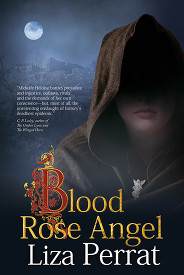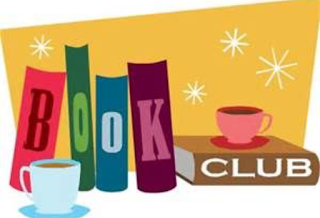Here's the first in our Author Feature series, on why we appreciate Liza Perrat.
Liza’s Bone Angel trilogy captures moments of upheaval in French history – the Revolution, the Nazi Occupation, the Black Death. But we view them through the lives of ordinary people – the people largely forgotten by the history books. - Catriona Troth
Jane Dixon Smith: As a huge fan of history, and a writer of historical fiction myself, I love getting lost in Liza's work. For me she invokes a real sense of era and I love how she's adapted to different centuries in her Bone Angel series, from a French village during the 1348 Black Plague, to the French Revolution and WW2 Nazi-occupied France. I found the descriptions and setting of Lucie-sur-Vionne particularly vivid and real; unsurprising as it is based on a real rural village, Oradour-sur-Glane. When you begin to flick back and forth between centuries, reading stories based in the same village, you suddenly realise just how much history these places have seen, and when you look at them through fresh eyes. They don't just hold a story they are most remembered for, but many other stories too. Liza's work really made me realise just how rich the past is. A great achievement.What readers say about Spirit of Lost Angels:
“This was definitely a book that will leave you swirling with emotions ... I would definitely recommend the book as a suspenseful and historical tale of a women. Liza Perrat weaves a great story and if you are into historical fiction this a book just for you!”
“The character betrayals are very strong and realistic as are descriptions of the locations. A well-researched novel from this début author who writes in a way that will draw you in, especially if you are a fan of historical fiction.”
“The author has researched the period meticulously and effectively evokes the spirit of the age, whether she is writing about life in a French village or in the melting pot that was Paris in the revolutionary era. Liza Perrat is particularly strong when writing about the role and lot of women at the time. She also cleverly weaves well-known incidents, such as the diamond necklace affair or the storming of the Bastille, into Victoire’s story. This is a compelling and vivid story with strong characterisation, and I can recommend it highly to anyone who likes historical fiction.”
Gillian Hamer: Liza’s writing was one of the first historical fiction books that I remember reading in the online writing group where we met. I fell in love immediately with what was to become Spirit of Lost Angels, loving how she evoked the sense of time and place in her writing. Some aspects of the story echoed with what I was writing at the time, and I remember being so impressed by the ease she seemed to create her chosen world. She has a fluidity to her prose that is almost lyrical, especially in descriptions and sensory details. Her characters come to life, big and bold and ready to star in the production. I’ve learned a lot from reading Liza’s novels over the past decade about myself and my own writing – that in itself is an invaluable tool for a writer.
What readers say about Wolfsangel: “Liza Perrat's writing is full of passion and realism, the reader is drawn into the action and becomes part of the village from the opening chapters. The lead character; Celeste, has many difficult situations to deal with during the course of the story - her predicaments and her decisions are harrowing at times and leads the reader to consider how one decision can change the course of a life. Entwined into the story are true events, and it is this that adds authenticity and also the shock factor. The brutality of war, and of human behaviour is laid bare by the author who is not afraid to include the full horror of events that really happened.”
“Perrat draws the village characters deftly and highlights the high level of resourcefulness, inner strength, and sometimes lies, that were essential if you were to survive. It was a tension-loaded read. We know from education and reading other work that it was dangerous, often fatal, speaking and acting against the occupying forces; you had to be exceptional to attempt these. We have read stories of deportation and execution, so we know the worst that could have happen. Yet I was still on the edge of my seat reading Wolfsangel.”
JJ Marsh: It's no surprise we work so well as a team. We liked each other's writing long before we ever met. Liza's sensuous use of language has taught me a lot, and her emotional engagement with our work makes us focus on our strengths. If we under-use our talents, she gives us a swift kick. Her attention to detail shines in her own writing and she insists we do the same. I can point to lines, images, characters and scenes in my own books which owe their origin to Ms Perrat.
What readers say about Blood Rose Angel: “I can't begin to describe how much I enjoyed reading this novel. It caught my attention from the very first page and held me in its grip until the fabulous ending … If you like tales with strong, determined, and moral women at the helm, then this tale is sure to please. There is never a dull moment as the story unfolds and I can honestly say that it is unputdownable. This is a must read for those who love medieval historical fiction. You won't be disappointed.”
“What I like about this author’s writing style is the way in which she allows both characterisation and plot to have equal importance, with neither one attempting to outshine the other. The medieval setting comes gloriously alive, with all the sights, sounds and smells of the medieval world, and yes, also the petty indifferences, which are so reminiscent of this dangerous time. However, Blood Rose Angel is also inhabited by vibrant and memorable characters who take command of their story and as they leap fully formed onto the page, we are allowed a tantalising glimpse into the intricacies and sadness of their daily lives.”
“It’s beautifully written and the dialogue is a joy too, which is rare in historical fiction. But it’s definitely not all sunshine and the sweet scent of lavender and beeswax. It’s set during the Black Death and the medical passages are spot on (couldn’t resist the pun) as are the midwifery details … I won’t divulge the story any further. Suffice to say there are some harrowing scenes, though I’m glad to report that Perrat delivers a satisfying and uplifting ending. Now I’m definitely going to read her other books.”
Catriona Troth: One
thing I have always loved about Liza’s writing is her capacity to evoke
the way landscape changes with the seasons. Whether she is writing about
rural France in the middle ages or present day Australia, her gift for
observation and her ability to see the world with fresh eyes immerses us
in time and place.
Find Liza online:
WEBSITE
















